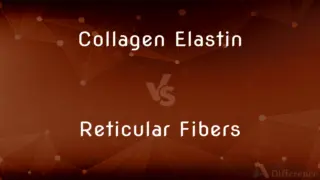Inequitable vs. Unequitable — What's the Difference?
By Tayyaba Rehman & Fiza Rafique — Updated on April 2, 2024
Inequitable refers to unfairness that violates principles of justice or equity, often involving moral judgment, while Unequitable emphasizes a lack of equality or even distribution without moral implications.

Difference Between Inequitable and Unequitable
Table of Contents
ADVERTISEMENT
Key Differences
Inequitable actions or situations are those considered unjust or unfair, often viewed through a lens of moral or ethical judgment. This term suggests a deviation from what is right or just in a societal context, where the focus is on the fairness of outcomes or processes. On the other hand, Unequitable pertains to the absence of equality or equity, primarily in terms of distribution or allocation. It indicates a scenario where resources, opportunities, or rights are not distributed evenly, but it does not necessarily carry a moral judgment.
Inequitable often involves a subjective assessment of justice, implying that an action or decision has wronged someone or some group by not adhering to accepted standards of fairness. This term is commonly used in legal and social contexts, where there is a clear expectation of justice being upheld. Whereas, Unequitable is used in contexts where the emphasis is on the mathematical or factual unevenness of distribution without a direct inference to ethical or moral standards.
The term inequitable is more frequently associated with scenarios where there is a perceived violation of social justice principles, such as in cases of discrimination or bias. It suggests a deeper level of unfairness that impacts individuals or communities in significant ways. Unequitable, however, often refers to imbalances that, while unfair, may not always invoke a strong moral or ethical response. It can describe situations ranging from financial distributions to access to resources, highlighting disparities without implying wrongful intent.
Inequitable can also imply a need for corrective action or intervention to restore fairness, suggesting an active wrongdoing that must be addressed. It carries a call to justice, urging for measures to amend the unfairness. On the contrary, Unequitable might merely state the existence of inequality, without suggesting an inherent need for correction or implying that an injustice has been committed.
Comparison Chart
Definition
Unfair or unjust, violating principles of justice
Lacking equality or even distribution
ADVERTISEMENT
Moral Implication
Yes, involves ethical or moral judgment
No, focuses on factual or mathematical inequality
Context of Use
Legal, social justice contexts
Descriptive, often used in financial or resource allocation contexts
Implication of Wrongdoing
Yes, suggests a violation of fairness needing correction
No, indicates a state of disparity without blame
Call to Action
Often implies a need for corrective measures
Primarily descriptive, without implying a need for action
Compare with Definitions
Inequitable
Not fair or just.
The inequitable distribution of resources led to public outcry.
Unequitable
Lacking fairness in allocation.
Unequitable access to healthcare is a global issue.
Inequitable
Biased or discriminatory.
Inequitable hiring practices have been challenged in court.
Unequitable
Without equality.
The policy resulted in unequitable outcomes for different groups.
Inequitable
Against principles of justice.
The law was criticized for being inequitable.
Unequitable
Not equal in distribution.
The unequitable division of property caused family disputes.
Inequitable
Unjustly favoring one side.
The treaty was seen as inequitable to the smaller nation.
Unequitable
Marked by disparity.
There was an unequitable distribution of speaking time.
Inequitable
Morally wrong.
They protested the inequitable treatment of workers.
Unequitable
Imbalanced.
The benefits were unequitable among employees.
Inequitable
Not equitable; unfair.
Unequitable
Inequitable
Inequitable
Unfair, unequal or unjust
Unequitable
Inequitable.
Inequitable
Not equitable; not just.
Inequitable
Not equitable or fair;
The inequitable division of wealth
Inequitable taxation
Common Curiosities
Can a situation be both inequitable and unequitable?
Yes, a situation can be both if it involves unfair distribution (unequitable) and violates principles of fairness or justice (inequitable).
Does unequitable imply a solution or corrective action?
No, unequitable describes a state of inequality without necessarily suggesting a need for corrective action.
What does inequitable mean?
Inequitable refers to something that is unfair or unjust, often in a way that violates moral or ethical principles.
Is inequitable always negative?
Yes, inequitable is used negatively, as it denotes a lack of fairness or justice.
Can policies be inequitable?
Yes, policies can be deemed inequitable if they result in unfair treatment or outcomes.
What does it mean if a law is described as inequitable?
It means the law is considered unjust or unfair, possibly because it discriminates against a particular group or violates ethical standards.
Can the term unequitable be used in financial contexts?
Yes, unequitable is often used in financial contexts to describe uneven distributions of wealth or resources.
How is unequitable different from inequitable?
Unequitable focuses on the lack of equality or even distribution, often without implying moral judgment, whereas inequitable implies unfairness or injustice with moral implications.
How can an organization address inequitable practices?
Organizations can address inequitable practices by implementing fair policies, ensuring equal opportunities, and actively combating discrimination.
What role does ethics play in defining something as inequitable?
Ethics plays a crucial role in defining inequitable situations, as it involves judgments about what is right or wrong, fair or unfair.
Why is addressing unequitable situations important?
Addressing unequitable situations is important to ensure fair access to opportunities and resources, promoting equality and justice.
What type of contexts is the term inequitable used in?
Inequitable is often used in legal and social justice contexts to describe situations that are unjust or unfair.
What makes a distribution unequitable?
A distribution is unequitable when it is not equal or even, regardless of the reasons behind the disparity.
Is inequity the same as inequality?
Inequity often involves a moral judgment about fairness, whereas inequality refers to a lack of equality without necessarily considering fairness.
How do societal norms influence perceptions of what is inequitable?
Societal norms shape perceptions of fairness and justice, determining what is considered inequitable in different contexts.
Share Your Discovery

Previous Comparison
Hoisin vs. Teriyaki
Next Comparison
Enthusiasm vs. ExcitementAuthor Spotlight
Written by
Tayyaba RehmanTayyaba Rehman is a distinguished writer, currently serving as a primary contributor to askdifference.com. As a researcher in semantics and etymology, Tayyaba's passion for the complexity of languages and their distinctions has found a perfect home on the platform. Tayyaba delves into the intricacies of language, distinguishing between commonly confused words and phrases, thereby providing clarity for readers worldwide.
Co-written by
Fiza RafiqueFiza Rafique is a skilled content writer at AskDifference.com, where she meticulously refines and enhances written pieces. Drawing from her vast editorial expertise, Fiza ensures clarity, accuracy, and precision in every article. Passionate about language, she continually seeks to elevate the quality of content for readers worldwide.














































